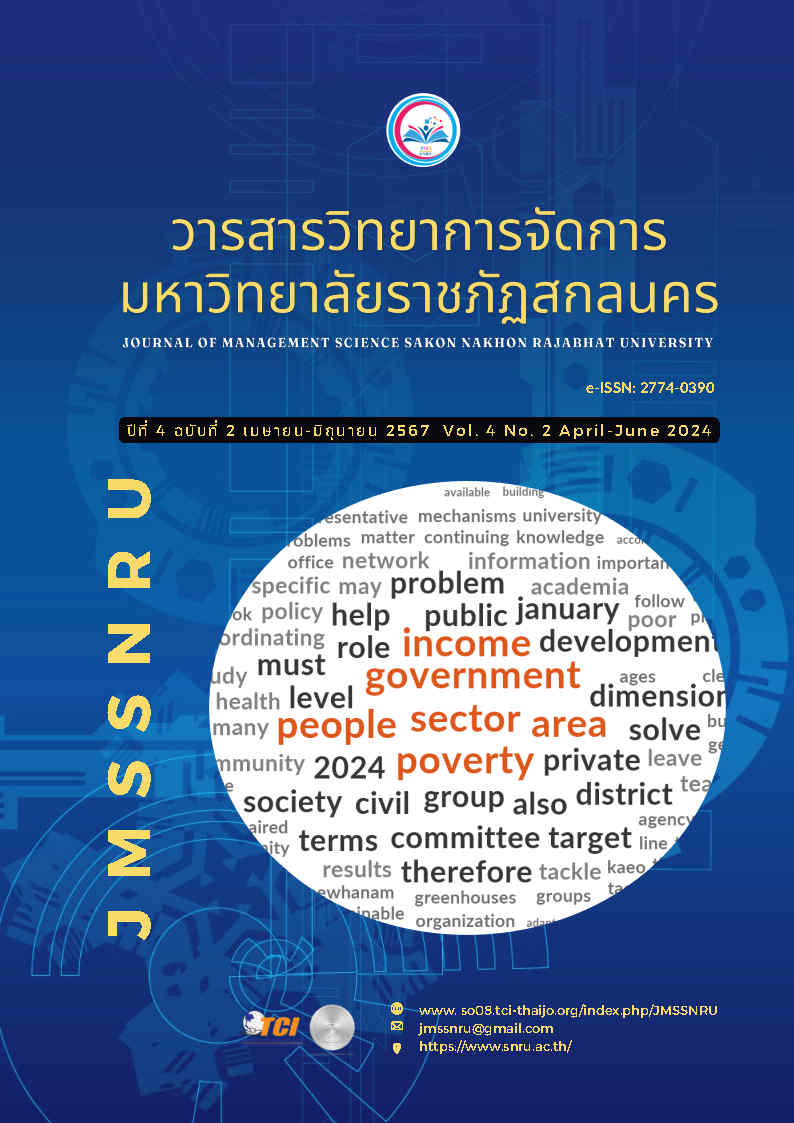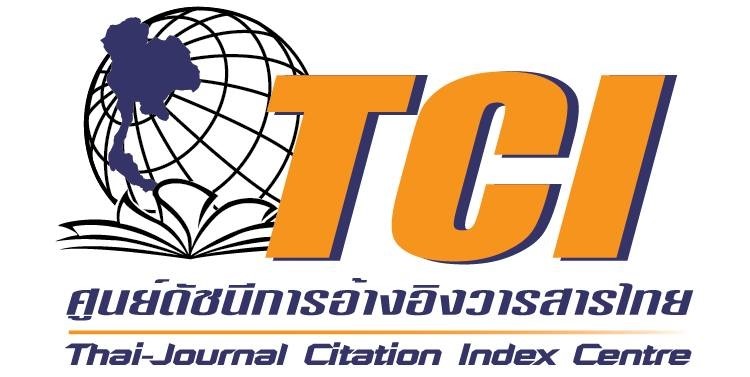การศึกษาความเป็นไปได้ทางการเงินในการลงทุนธุรกิจสถานบริการดูแลผู้สูงอายุของมหาวิทยาลัยราชภัฏอุตรดิตถ์
คำสำคัญ:
ความเป็นไปได้ทางการเงิน, สถานบริการดูแลผู้สูงอายุ, ผู้สูงอายุบทคัดย่อ
การวิจัยนี้มีวัตถุประสงค์เพื่อศึกษาความเป็นไปได้ทางการเงินในการลงทุนธุรกิจสถานบริการดูแลผู้สูงอายุ ของมหาวิทยาลัยราชภัฏอุตรดิตถ์ เป็นการวิจัยแบบผสมผสาน ผู้ให้ข้อมูลหลักจำนวน 15 คน คือ 1) ผู้ประกอบการสถานบริการดูแลผู้สูงอายุ จำนวน 5 คน 2) บุคลากรสุขภาพ จำนวน 5 คน และ 3) ผู้สูงอายุ จำนวน 5 คน เครื่องมือที่ใช้ในการวิจัยเป็นแบบสัมภาษณ์แบบมีโครงสร้าง เก็บรวบรวมข้อมูล เดือนมิถุนายน 2566 ถึงเดือนกรกฎาคม 2566 นำข้อมูลมาวิเคราะห์ต้นทุนคงที่และต้นทุนผันแปร วิเคราะห์ผลตอบแทน โดยคิดเฉพาะรายรับที่คาดว่าจะได้รับในรูปตัวเงิน ภายใต้แผนธุรกิจ Business Model Canvas (BMC) วิเคราะห์ระยะเวลาคืนทุน มูลค่าปัจจุบันสุทธิ อัตราผลตอบแทน และความอ่อนไหวของการลงทุน ผลการศึกษา พบว่า 1) ภาพรวมของธุรกิจสถานบริการดูแลผู้สูงอายุ ของมหาวิทยาลัยราชภัฏอุตรดิตถ์ มีความคุ้มค่าลงทุน โดยมีระยะเวลาคืนทุนอยู่ที่ 5 ปี 5 เดือน 14 วัน โครงสร้างการลงทุนเริ่มแรกอยู่ที่ 20 ล้านบาท ต้นทุนขายในปีที่ 1 อยู่ที่ 5,792,284 บาท การประมาณการผลตอบแทนของโครงการในปีที่ 1 เป็นเงินทั้งสิ้น 5,143,520 บาท โดยมีอัตราผลตอบแทนภายในของโครงการ เท่ากับ 27 % และมูลค่าปัจจุบันสุทธิ เท่ากับ 58,285,666 บาท 2) ความอ่อนไหวของโครงการกรณีต้นเพิ่มขึ้นร้อยละ 5 พบว่า มูลค่าปัจจุบันสุทธิ เท่ากับ 51,350,310 บาท มีระยะเวลาคืนทุน 5 ปี 7 เดือน 20 วัน ในกรณีผลตอบแทนลดลงร้อยละ 5 มูลค่าปัจจุบันสุทธิเท่ากับ 47,436,026 บาท มีระยะเวลาคืนทุน 5 ปี 8 เดือน 29 วัน และกรณีต้นทุนเพิ่มขึ้น ร้อยละ 5 และผลตอบแทนลดลง ร้อยละ 5 มูลค่าปัจจุบันสุทธิเท่ากับ 40,500,670 บาท และมีระยะเวลาคืนทุน 6 ปี สรุปธุรกิจสถานบริการดูแลผู้สูงอายุของมหาวิทยาลัยราชภัฏอุตรดิตถ์ มีความคุ้มค่าในการลงทุน แม้ว่าวิเคราะห์ความอ่อนไหวของโครงการทั้งต้นทุนเพิ่มขึ้น ค่าตอบแทนลดลง และทั้งต้นทุนเพิ่มขึ้นและค่าตอบแทนลดลง ร้อยละ 5
เอกสารอ้างอิง
กรมสนับสนุนบริการสุขภาพ, กระทรวงสาธารณสุข. (2565). จำนวนการขอขึ้นทะเบียนผู้ให้บริการกิจการดูแลผู้สูงอายุและผู้มีภาวะพึ่งพิง. สืบค้น 2 กรกฎาคม 2566 จาก https://esta.hss.moph.go.th.
กรมอนามัย สำนักอนามัยผู้สูงอายุ. (2562). รายงานประจำปี 2562. สืบค้น 1 กรกฎาคม 2566 จาก https://eh.anamai.moph.go.th.
ชุดา วิมุกตายน. (2564). การศึกษาความเป็นไปได้ในการดำเนินธุรกิจสถานดูแลผู้สูงอายุในอำเภอบางละมุงและอำเภอสัตหีบ. วารสารการจัดการภาครัฐและภาคเอกชน, 28(2), 69-90.
ณัชชนม์ เจริญษา. (2565). แผนธุรกิจ ศูนย์ดูแลผู้สูงอายุ "ต้นส้มเนอร์สซิ่งโฮม". สารนิพนธ์ปริญญาการจัดการมหาบัณฑิต กรุงเทพฯ: มหาวิทยาลัยมหิดล.
ตรีรัตน์ พรหมพลุ้ย และธีระวัฒน์ จันทึก. (2560). การวิเคราะห์ต้นทุนและความอ่อนไหวของธุรกิจศูนย์ส่งเสริม
สุขภาพผู้สูงอายุเชิงป้องกัน พื้นที่จังหวัดนครปฐม. ฉบับภาษาไทย มนุษยศาสตร์ สังคมศาสตร์ และศิลปะ, (10)3, 430-44.
ภัสสร พัฒนะพรหมมาส. (2563). แผนธุรกิจศูนย์ดูแลผู้สูงอายุ Be Care Nursing Home. วิทยานิพนธ์หลักสูตรการจัดการมหาบัณฑิต มหาวิทยาลัยกรุงเทพ.
ภิญญดา รื่นสุข. (2558). รูปแบบการตลาดธุรกิจการใหบริการดูแลผูสูงอายุ ในเขตกรุงเทพมหานคร. วารสารวิชาการมหาวิทยาลัยราชภัฏพระนคร, 6(1), 197-209.
ระพีพัฒน์ ช้อนสวัสดิ์. (2563). ส่วนประสมทางการตลาดบริการ คุณภาพบริการ พฤติกรรมการเลือกใช้สถานบริบาลผู้สูงอายุและการจัดการธุรกิจสถานบริบาลผู้สูงอายุในกรุงเทพมหานคร. วิทยานิพนธ์หลักสูตรบริหารธุรกิจมหาบัณฑิต มหาวิทยาลัยศรีนครินทรวิโรฒ.
สุตาภัทร จันทร์ประเสริฐ. (2565). รูปแบบความสามารถทางการจัดการธุรกิจสถานบริบาลและการดูแลผู้สูงอายุในประเทศไทย. วิทยานิพนธ์บริหารธุรกิจดุษฎีบัณฑิต มหาวิทยาลัยราชภัฏวลัยอลงกรณ์ในพระบรมราชูปถัมภ์.
อกณิษฐ์ ชัยเฉลิมศักดิ์ และ ธีระวัฒน์ จันทึก. (2559). การศึกษาความเป็นไปได้ทางการเงินในการลงทุนธุรกิจสถานบริการดูแลผู้สูงอายุในประเทศไทย. วารสารราชมงคลล้านนา, 4(1), 31-44.
อรรถวุฒิ เรืองตรานนท์. (2558). การศึกษาความเป็นไปได้ในการลงทุนธุรกิจที่พำนักระยะยาวสำหรับผู้เกษียณอายุชาวญี่ปุ่นในจังหวัดเชียงใหม่. วิทยานิพนธ์บัญชีมหาบัณฑิต มหาวิทยาลัยเชียงใหม่.
Braza, K. P., Selauso, H. M. (2016). Feasibility study of homecare facility in tibiao, ANTIQUE. Iloilo: The Faculty of College of Business and Accountancy Graduate Programs Central Philippine University.
DBMR. (2023). Asia-Pacific Elderly Care Market – Industry Trends and Forecast to 2029. ,2023. https://www.databridgemarketresearch.com/reports/asia-pacific-elderly-care-market
Jin, X., Uda, K., Ishimaru, M., Kihara, T., & et al. (2023). The effect of business operation system on nursing home termination. Int J Public Health. https://doi.org/10.3389/ijph.2023.1605439
Nishimura, Y., & Oikawa, M. (2022). Who Has Benefited from Nursing Home Expansion in Japan?: The Effects of Government Supply-Side Intervention in the Elderly Care Market (February 9, 2022). https://ssrn.com/abstract=4030677 or http://dx.doi.org/10.2139/ssrn.4030677
Oikawa, M., & Nishimura, Y. (2023). Who Has Benefited from Nursing Home Expansion in Japan?: The Effects of Government Supply-Side Intervention in the Elderly Care Market. 1-63
Suhadi, E., Amalia L., Sudarwan., & Kusuma Among Praja, A. (2020). Financial Feasibility Study of Home Care Business. In Proceedings of the 1st International Conference on Recent Innovations - ICRI, SciTe Press, (2728-2733).
ดาวน์โหลด
เผยแพร่แล้ว
รูปแบบการอ้างอิง
ฉบับ
ประเภทบทความ
สัญญาอนุญาต
ลิขสิทธิ์ (c) 2024 วารสารวิทยาการจัดการ มหาวิทยาลัยราชภัฏสกลนคร

อนุญาตภายใต้เงื่อนไข Creative Commons Attribution-NonCommercial 4.0 International License.
บทความที่ตีพิมพ์ในวารสารวิทยาการจัดการ มหาวิทยาลัยราชภัฏสกลนคร เป็นทัศนะ ลิขสิทธิ์ และความรับผิดชอบของผู้เขียนเจ้าของผลงาน






